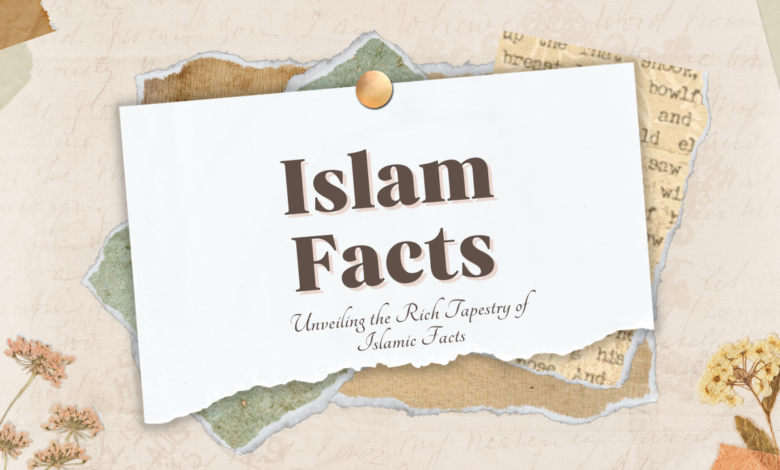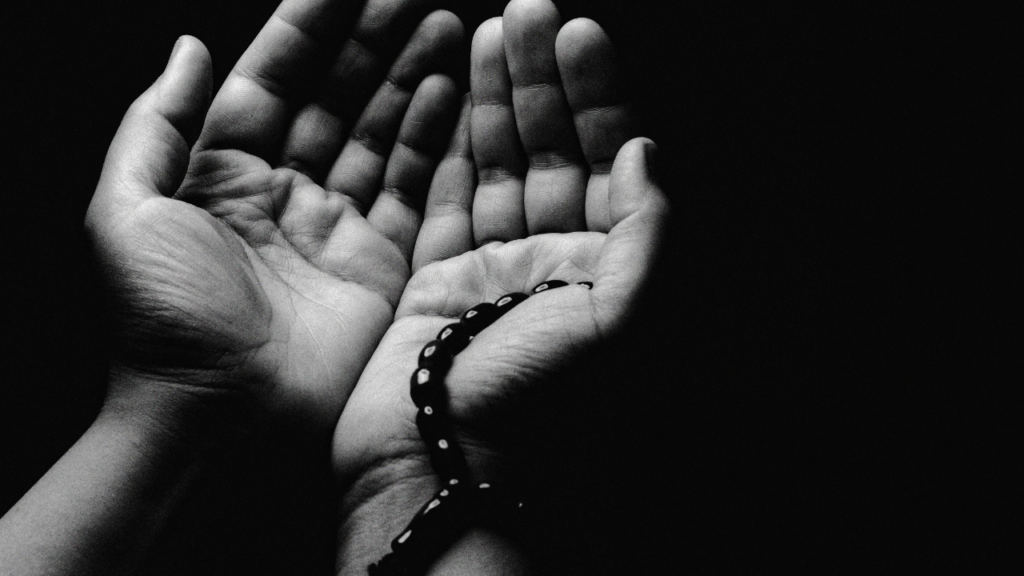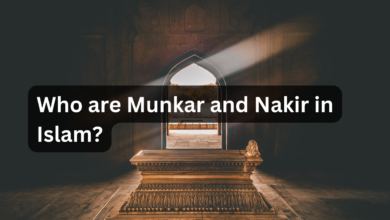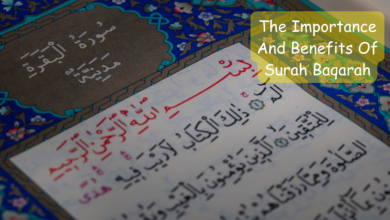
Islam Facts
The Five Pillars of Islam are the fundamental acts of worship and practice for Muslims. They include Shahada (faith), Salat (prayer), Zakat (charity), Sawm (fasting during Ramadan), and Hajj (pilgrimage to Mecca).

Islam: Unveiling the Facts
Islam, one of the world’s major religions, holds a rich tapestry of beliefs, practices, and historical significance. In this article, we will delve into the fundamental aspects of Islam, clarify misconceptions, and explore its cultural and historical contributions. Let’s embark on this journey to uncover the facts about Islam.
What Is Islam?
Islam is a monotheistic Abrahamic religion that emerged in the 7th century in the Arabian Peninsula. Its followers, known as Muslims, believe in one God, Allah, and the teachings of the Prophet Muhammad, who received revelations from God, later compiled in the holy book, the Quran.
The Five Pillars of Islam
Shahada (Faith)
The first pillar is Shahada, which emphasizes the declaration of faith, stating that there is no god but Allah, and Muhammad is His prophet.
Salat (Prayer)
Muslims are required to perform five daily prayers facing Mecca, connecting with God through a series of ritualistic movements and recitations.
Zakat (Charity)
Zakat, the third pillar, urges Muslims to give to those in need, ensuring economic and social justice.
Sawm (Fasting)
During the holy month of Ramadan, Muslims fast from dawn to sunset, emphasizing self-discipline and spiritual reflection.
Hajj (Pilgrimage)
Muslims who are physically and financially able are obligated to undertake a pilgrimage to Mecca at least once in their lifetime.
Also Check
- Who Brought Islam To India?
- Who Brought Islam To India?
- Is Trading Haram in Islam?
- Is it Haram to Have a Dog?
- Why is music Haram in Islam?
Islamic Beliefs and Practices
Belief in One God
Central to Islam is the belief in the oneness of God, who is compassionate and merciful.
The Quran
The Quran, the holy scripture of Islam, contains the teachings and guidance for Muslims, revealed to the Prophet Muhammad.
Prophets in Islam
Muslims believe in several prophets, including Adam, Noah, Abraham, Moses, and Jesus, viewing Muhammad as the final prophet.
Daily Practices
Daily practices include recitation of the Quran, charity, and maintaining moral and ethical behavior.
Islam’s Historical and Cultural Significance
Islam’s history is a tale of conquests, trade, and cultural exchange. It had a profound impact on the development of art, architecture, science, and more.
Misconceptions About Islam
Unfortunately, Islam is often misunderstood and mischaracterized. We’ll address some common misconceptions and shed light on the reality.
Women in Islam
Contrary to popular belief, Islam grants women certain rights and protections. We will explore the status of women in Islam.
Islam and Science
Islam has a rich history of scientific contributions, including advancements in mathematics, astronomy, and medicine.
Islamic Art and Architecture
Islamic art is renowned for its intricate geometric patterns and calligraphy. We’ll delve into the unique aesthetics of Islamic art and architecture.
Islamic Contributions to Civilization
Islamic civilization made substantial contributions to fields such as algebra, medicine, and philosophy, which shaped the modern world.
Islam Today
Today, Islam is a global faith, with over a billion followers worldwide. We’ll explore its contemporary relevance and challenges.
Common Terms and Phrases
Understanding some key Islamic terms and phrases can help demystify the religion and its culture.
Conclusion
In conclusion, Islam is a diverse and profound religion with a rich history, a deep cultural impact, and a contemporary global presence. It is essential to understand the facts about Islam to foster tolerance and respect among different cultures and religions.

FAQs about Islam Facts:
What are the Five Pillars of Islam?
The Five Pillars of Islam are the fundamental acts of worship and practice for Muslims. They include Shahada (faith), Salat (prayer), Zakat (charity), Sawm (fasting during Ramadan), and Hajj (pilgrimage to Mecca).
Is Islam only practiced in the Middle East?
No, Islam is a global religion with followers in various parts of the world. It is not confined to the Middle East and has diverse communities worldwide.
What is the significance of the Quran in Islam?
The Quran is the holy book of Islam, believed to be the word of God as revealed to the Prophet Muhammad. It serves as the ultimate source of guidance and moral principles for Muslims.
How do women’s rights in Islam compare to Western societies?
Women’s rights in Islam can vary based on cultural interpretations and geographic regions. In some cases, they align with or even surpass Western standards, while in others, there may be differences. It’s important to note that practices can vary widely.
What are some famous examples of Islamic architecture?
Famous examples of Islamic architecture include the Taj Mahal in India, the Alhambra in Spain, and the Blue Mosque in Turkey. These structures showcase the intricate and elegant designs that are characteristic of Islamic art and architecture.
How has Islamic civilization influenced modern science and mathematics?
Islamic civilization made significant contributions to the fields of mathematics, astronomy, medicine, and more during the Golden Age of Islam. These contributions laid the foundation for many modern scientific and mathematical principles.
What is the role of the Prophet Muhammad in Islam?
In Islam, Prophet Muhammad is regarded as the final messenger of God, who received revelations from God and delivered them through the Quran. He is a central figure in Islamic faith, providing guidance and exemplifying the ideal way of life for Muslims.
Are there different branches or sects within Islam?
Yes, Islam has several branches and sects, the two most prominent being Sunni and Shia. These divisions often revolve around differences in interpretation and leadership, but the core beliefs remain largely the same.
How do Muslims view other religions and people of different faiths?
Muslims are encouraged to respect and coexist peacefully with people of different faiths. The Quran emphasizes religious tolerance and the importance of dialogue and understanding among diverse communities.
What are some common misconceptions about Islam that this article addresses?
This article addresses misconceptions related to violence, women’s rights, and the compatibility of Islam with modern society. It aims to clarify these stereotypes and provide a more accurate understanding of the religion.






